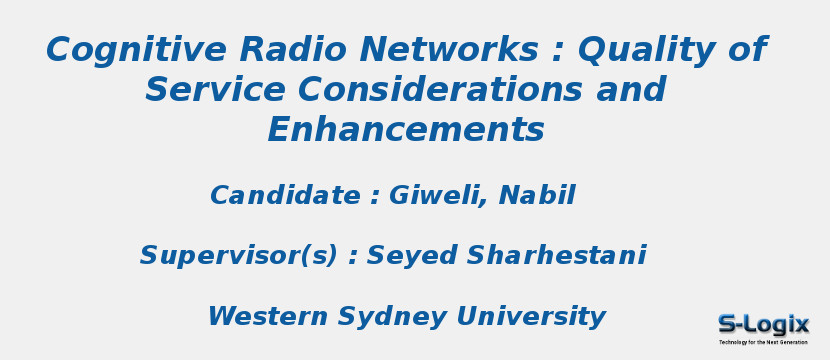Research Area: Mobile Ad Hoc Networks
The explosive growth of wireless and mobile networks, such as the Internet of Things and 5G, has led to a massive number of devices that primarily use wireless channels within a limited range of the radio frequency spectrum (RFS). The use of RFS is heavily regulated, both nationally and internationally, and is divided into licensed and unlicensed bands. While many of the licensed wireless bands are underutilized, usable unlicensed bands are usually overcrowded, making the efficient use of RFS one of the critical challenges faced by future wireless communication technologies. The cognitive radio (CR) concept is proposed as a promising solution for the under utilization of useful RFS bands.
This thesis aims to address these QoS issues in CR while considered the enhancement of RFS utilization. This study concentrates on the spectrum sensing function, among other CR functions, because of its major impact on QoS and spectrum utilization. Several spectrum sensing methods are reviewed to identify potential research gaps in analyzing and addressing related QoS implications. It has been found that none of the well-known sensing techniques is suitable for all the diverse QoS requirements and RFS conditions: in fact, higher accuracy sensing methods cause a significant QoS degradation, as illustrated by several simulations in this work.
Name of the Researcher: Giweli, Nabil
Name of the Supervisor(s): Seyed Sharhestani
Year of Completion: 2018
University: Western Sydney University
Thesis Link: Home Page Url
